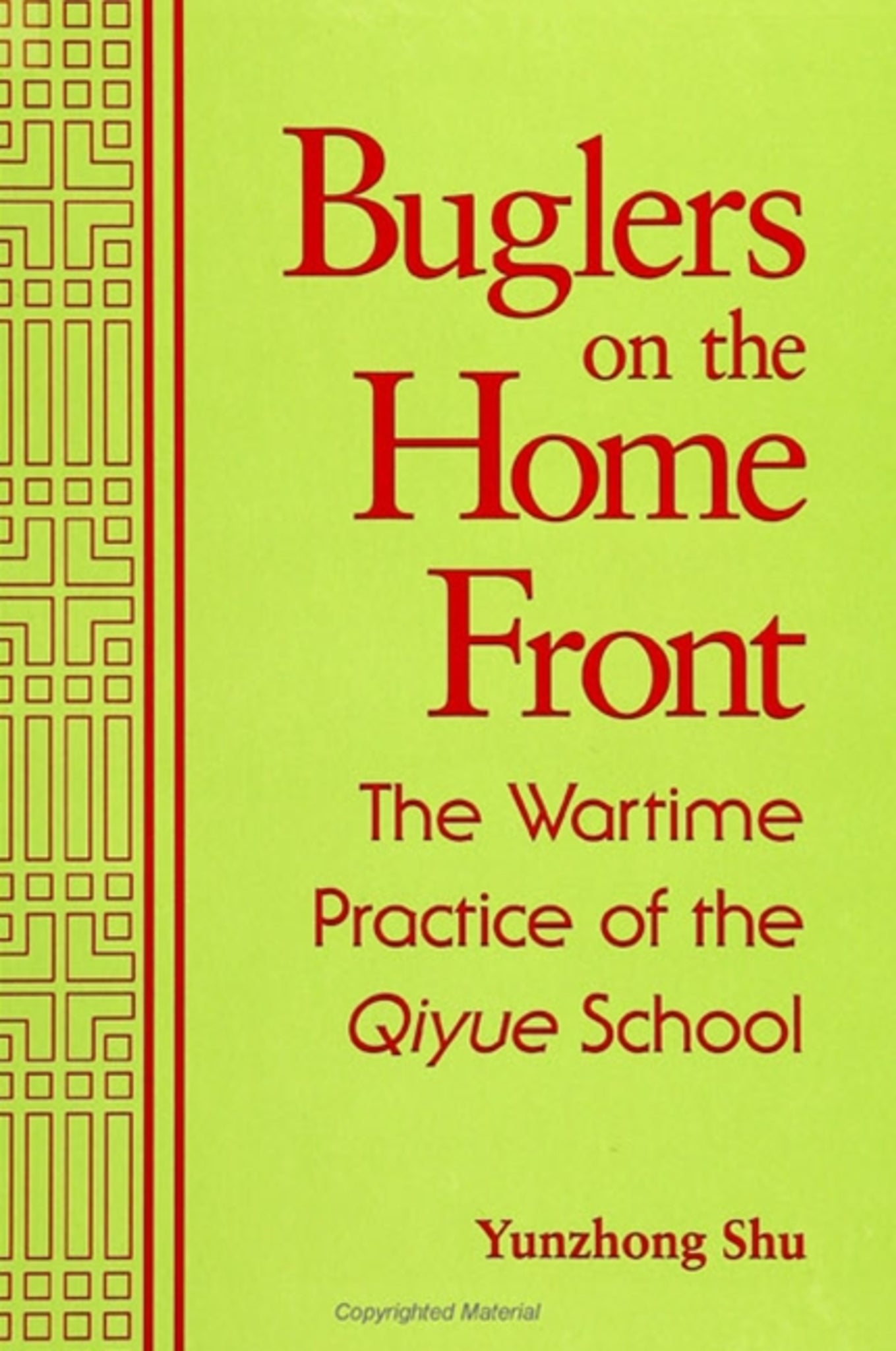We're sorry. An error has occurred
Please cancel or retry.
Buglers on the Home Front

Some error occured while loading the Quick View. Please close the Quick View and try reloading the page.
Couldn't load pickup availability
- Format:
-
24 February 2000

The first book-length study in English of an important but neglected school of dissident Chinese writers active around the time of the war against Japan (1937–45).
Buglers on the Home Front studies an important, yet under-examined group of dissident writers active in Chinese leftist literary circles around the time of the war against Japan (1937–45). Writers studied include Hu Feng (the spiritual leader of the school), Cao Bai, Qiu Dongping, A Long, Jia Zhifang, Lu Ling, and Ji Pang. As the first book-length study in English of the Qiyue school, it utilizes a broad range of primary and secondary sources and combines a variety of approaches and concerns-intellectual history, political history, literary history, and literary criticism-to introduce an overlooked dissenting voice in modern Chinese literature.
The book's investigation of the roles of subjectivity and domestic cultural criticism reveal the tensions within an environment generally known for its homogenization by nationalist sentiments on the one hand and by Marxist discourse on the other.
While situating the Qiyue school historically and relationally, Buglers on the Home Front not only revises the general impression of China's wartime literature but also uses the school as an example to call attention to the crucial influence of cultural politics on modern literature.


"These Qiyue writers' commitment to individualism vis á vis collective politics, inquiry into the psychological depth of humanity, and penchant for demythologizing the heroics of revolution not only contradicted the literary policy handed down by Mao and his cohorts but also threatened to subvert the ideological legitimacy of the central(ized) partyline. The fall of the school in the fifties, ironically after the founding of the People's Republic, was forseeable from the outset. But the legacy of the Qiyue school is something not to be forgotten." — David Der-wei Wang, Columbia University
Acknowledgments
Introduction
Toward an Energetics of Literary Production in Modern China
One
From a May Fourth Youth to Lun Xun's Ally: Hu Feng's Intellectual Evolution
Two
Antidote to Wartime Heroics: Early Qiyue Reportage
Three
From Reflection to Lyricism: The Transition from Qiyue Reportage to Qiyue Fiction
Four
Image Making, Legacy Clarification, and Agenda Formulation: Hu Feng's Interpretations of Lu Xun, May Fourth, and the "Subjective Fighting Spirit"
Five
Different Modes of Intellectual Intervention: Lu Ling's Short Stories
Six
Manifestations of Self-Transcendence: Lu Ling's Children of Wealth
Seven
(Re)presentation of Historical Particularities: Ji Pang's Night Travellers
Epilogue
Notes
Bibliography
Index



